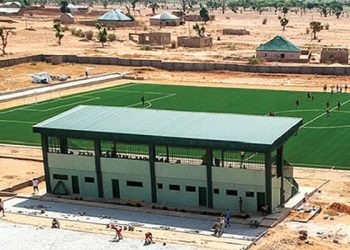In an effort to stem the tide of insecurity, Governor Mohammed Bago of Niger State has urged residents to “stand up and defend themselves,” declaring that his administration would neither negotiate with bandits nor pay ransom.
While this statement reflects the deep frustration of communities living under constant threat from terrorists, such a call for self-defence warrants scrutiny to prevent it from pushing the state into a spiral of lawlessness and anarchy.
During a recent visit to the people of Rijau and Magama LGAs, where communities were recently attacked by bandits in Kontagora, Bago declared, “The state has reached a point where the people must stand up and defend themselves because ransom will only turn kidnapping into a thriving business.”
He added, “We are surrounded by enemies, but we will not give up. The Constitution gives us the right to defend our lives and property, and we will do just that. There is no going back.”
Bago described the frequent invasion of communities and the displacement of residents as “embarrassing and unacceptable.”
He mooted his administration’s plans to recruit and train 10,000 members for the Joint Task Force to help restore security across the state.
As the state’s Chief Security Officer, Bago’s commitment to addressing insecurity is commendable. However, the responsibility for ensuring citizens’ safety rests with the state’s security apparatus, not with civilians.
The International Centre for Investigative Reporting estimated that between January 2022 and June 2023, Niger State recorded 1,552 people killed and about 1,044 kidnapped across those 18 months.
A survey by the National Bureau of Statistics estimated some 2.24 million kidnapping incidents between May 2023 and April 2024, with households paying an average ransom of N2.7 million. These are devastating figures. They show that insecurity has become systemic, not just episodic.
However, the Niger State governor needs to acknowledge that under the constitution, it is the state and its agencies — the police, the military, civil defence and other security organs — not civilians wielding military-grade arms that are tasked with the responsibility of protecting the populace.
In Niger State and beyond, the rallying call should be for citizens to stand by the state, shoulder their share of vigilance, but not take the law into their own hands. The governor’s vow to refuse ransom payment and negotiation is bold—but boldness must be matched with legality.
When civilians arm themselves in communities like Magama, Rijau, Wushishi, Kontagora or Mariga, what begins often as “defence” may morph into vigilantism, tit-for-tat reprisals, breakdown of the rule of law, and unchecked escalation. In effect, the state relinquishes its monopoly of legitimate force and invites chaos.
Violence and mass shootings are prevalent in the United States, where the law permits citizens to carry weapons. This is not advisable. So, the Nigerian state should be careful that it does not descend into further anarchy.
Niger State needs to reclaim its primary role. The constitution defines the roles of state security agencies; these must be reinforced with clarity, capacity, accountability and trust.
Dispensing with ransom payment and refusing negotiations are policy positions worth discussing — but they cannot replace a functioning security architecture.
There should be proper regulation of civilian defence, and they should be subordinate to the state government.
Community watch-groups or civil defence auxiliaries can assist—but only under lawful oversight, restrictions on arms, command structures, and clarity of mandate.
What Bago needs to avoid is sanctioning every resident to become a paramilitary actor against highly armed, organised criminal gangs.
Tellingly, the state governor has established a link between illegal mining and bandit access. Without tackling governance, economic opportunities, and forest security, any purely tactical defence initiatives will be short-lived.
The root causes of kidnapping in the state need to be tackled. High levels of kidnapping and killings fuelled by banditry often thrive where poverty, unemployment, forest access and illegal mining converge.
Rather than people resorting to self-protection, what the state government needs to reinforce is a strategic war on insecurity through stronger, intelligence-led policing, better coordination with local communities, equipment, logistics, rapid response, and prosecutions.
Bago should prompt his governor colleagues to intensify the enactment of the law for state police.

















































